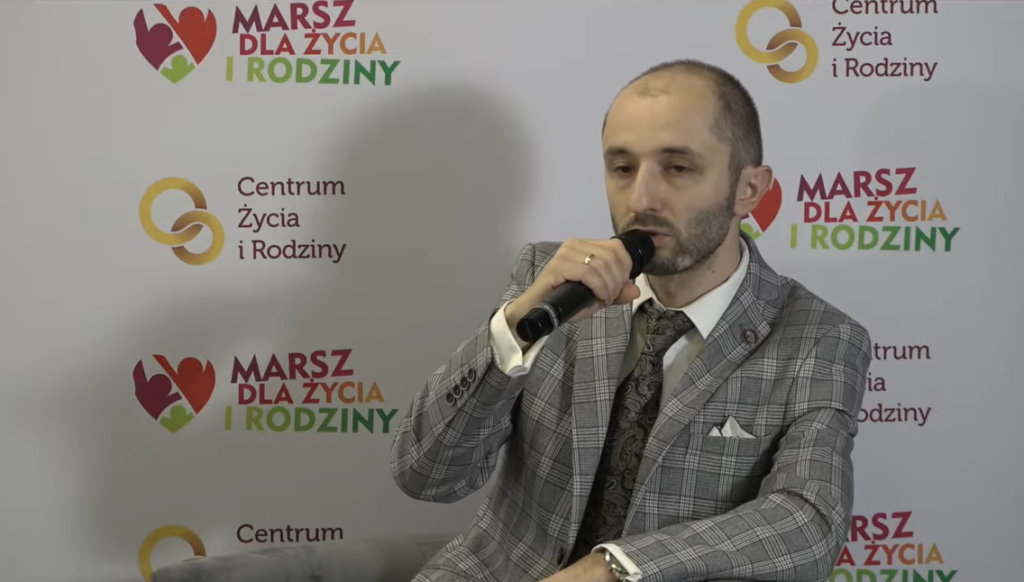
“Today, the teaching profession is a profession that will really require heroes” – attorney Marek Puzio, coordinator of the “Let’s protect children – school and education” program, said during a conference devoted to the problem of transition. The event was organized by the Life and Family Center. “By ‘heroes’ I also mean people who are able to defend their views, including those resulting from their faith and religion” – he clarified, recalling that what determines belonging to a given sex is genetics.
“Freedom of conscience and freedom of religion are guaranteed constitutionally, Article 53 of the Constitution ensures freedom of conscience. Freedom of conscience as one of the personal rights is explicitly mentioned in Article 23 of the Civil Code. Why am I talking about this? Because a teacher who does not want to agree to be forced to use such pronouns or names inconsistent with the sex of the student who requests it – sometimes also his parents – may invoke this constitutional freedom of conscience” – attorney Puzio said.
In his opinion, this argument could be used even if there was a change in the legal gender. “The Constitutional Tribunal indicated that these are systemic principles. Freedom of religion and freedom of conscience are systemic principles” – he noted. He also referred to the words of Adam Bodnar, former Ombudsman, who argued that the right to live in accordance with one’s gender identity is also a personal good that is subject to protection and points to Article 47 of the Constitution, which requires respect for private life and opportunities making decisions about your personal life. He pointed out that it is interpreted by case law and reproduced, among others, by the Commissioner for Human Rights, and there is a conflict of personal rights. “The Commissioner for Human Rights claims that a young person has the right to live with his or her own sense of gender identity, but we know the maxim that my freedom ends where your freedom begins” – he emphasized. “A teacher who does not want to comply with this, does not force the student to change his/her thinking, at most he/she can give him/her some advice, some tips – after all, the education system supports the educational function of the family. It would be best to do this in consultation with the parents and this the teacher cannot forbid him, but on the other hand, such a student or such a parent, in my opinion, cannot demand and force the teacher to act against his or her own conscience, or break the moral spine of this teacher” – he said.
In his opinion, the argument that a teacher’s refusal to address a student in a manner inconsistent with his or her gender may lead to the deterioration of the student’s mental condition does not withstand criticism, because a situation in which a teacher addresses a student in the way the latter wants may in turn, contribute to the deterioration of the teacher’s mental condition. “You can agree with the Ombundsman that this young man has the right to function with his own self-perception, but he cannot impose this as a fact on other people” – Puzio noted. In his opinion, only if there was a judicial change of gender and then a change of name in front of the head of the Civil Registry Office, the teacher’s use of phrases towards the student that was inconsistent with his biological sex could be considered justified. “Until this happens, I think that the teacher can also refer to the above-mentioned Article 3 of the Act on Civil Status Records” – he said.
The lawyer pointed out that neither documents from a psychologist nor a psychiatrist have official value, so on their basis the teacher is not obliged to address the student in a way inconsistent with his biological sex.
“You can often come across a demagogic argument or emotional blackmail: ‘do you want your son alive or dead?’. This is what some doctors and psychologists say, recommending to desperate parents whose child suddenly no longer feels comfortable in its own body, suggesting that if they do not this child will commit suicide. In the justification for the project on limiting or banning transition among minors, attorney Rafał Dorosiński cited statistics which show that the average number of committed suicides and the percentage of suicides among the group of people who have gone through transition is much higher than in the rest of society. It also seems that this argument can be easily refuted by referring to generally available research” – he noted, adding that such research had been conducted, for example, in Sweden, over the course of thirty years.
In the light of the above, it is clear that the groups supporting free transition do not care about the well-being of children, but about their destruction – mental, personality, identity, and finally physical.
AW
